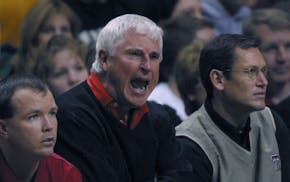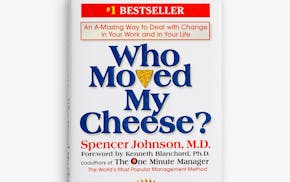In 1935, Charles Darrow brought a board game to Parker Brothers. The experts at Parker Brothers rejected the game, Monopoly, for "containing 52 fundamental errors."
The persistent Charles Darrow had spent the year after his rejection demonstrating the potential success of the game by selling numerous editions of the board game himself. Ironically, in 1936, Darrow was well-received by the embarrassed Parker Brothers, which eventually helped make the unemployed heating engineer from Germantown, Pa., a multimillionaire.
Since that time, over 275 million copies of Monopoly have been sold in 111 countries. Each year Parker Brothers prints more than $40 billion worth of Monopoly money — more than twice the amount printed annually by the U.S. Mint. Monopoly's success has produced 6 billion of those little green houses, enough to circle the globe.
Charles Darrow was hardly the first or last person who showed persistence and had a strong belief in his product. Many famous Americans have packed up their product and sold it out of the trunk of their car.
Phil Knight, founder of Nike, sold his first shoes from the trunk of his green Plymouth Valiant. Curt Carlson, founder of Carlson, the world's largest hospitality company, Radisson Hotels and TGI Fridays restaurants, sold his first Gold Bond trading stamps out of his car.
Few people had as difficult a time getting their invention accepted as Alexander Graham Bell. Even U.S. President Rutherford Hayes said of the telephone in 1876, "Who would ever want to use them?"
Chester Carlson, another young inventor, took his idea to 20 big corporations in the 1940s. After seven years of rejections, he was able to persuade Haloid, a small Rochester, N.Y., company, to purchase the rights to his electrostatic paper-copying process. Haloid has since become Xerox Corp.
In the 1950s, Bette Nesmith Graham began using white, water-based tempera paint and a thin paintbrush to cover her typing errors. She sold her first bottle, originally called Mistake Out, in 1956. Graham later patented the office product. After starting out with just 100 bottles a month in sales, Liquid Paper was selling 25 million bottles a year when Graham sold it for a reported $47.5 million in 1979.
In 1927, the head instructor of the John Murray Anderson Drama School instructed student Lucille Ball to "Try any other profession. Any other." I wonder what would have made him say "I Love Lucy"?
Buddy Holly was fired from the Decca record label in 1956 by Paul Cohen, who was known as Nashville's "artists and repertoire man." Cohen called Holly "the biggest no-talent I ever worked with."
These are all examples of ordinary people with extraordinary persistence. None of these folks was famous or rich or even particularly successful before their big breaks.
We've all heard it before, but there really is no substitute for persistence. In fact, persistence is sometimes as important as talent. It must come from within. You either want it or you don't. Giving up is not an option.
I remember when I was first starting out and asking a colleague I respected how many sales calls he would make on a prospect before giving up. He told me, "It depends on which one of us dies first."
Confucius said, "It does not matter how slowly you go so long as you do not stop."
Don't be discouraged. It's often the last key in the bunch that opens the lock.
Mackay's Moral: A flower has to push through a lot of dirt before it can blossom.
Harvey Mackay is a Minneapolis-based businessman. Contact him at 612-378-6202 or e-mail harvey@mackay.com.
Mackay: Approach AI with a mindset of collaboration rather than fear

Mackay: The key to winning in sports, business and life is practice

Mackay: Humor can make even dire situations bearable

Mackay: Want a raise? How and when you ask for it matter

